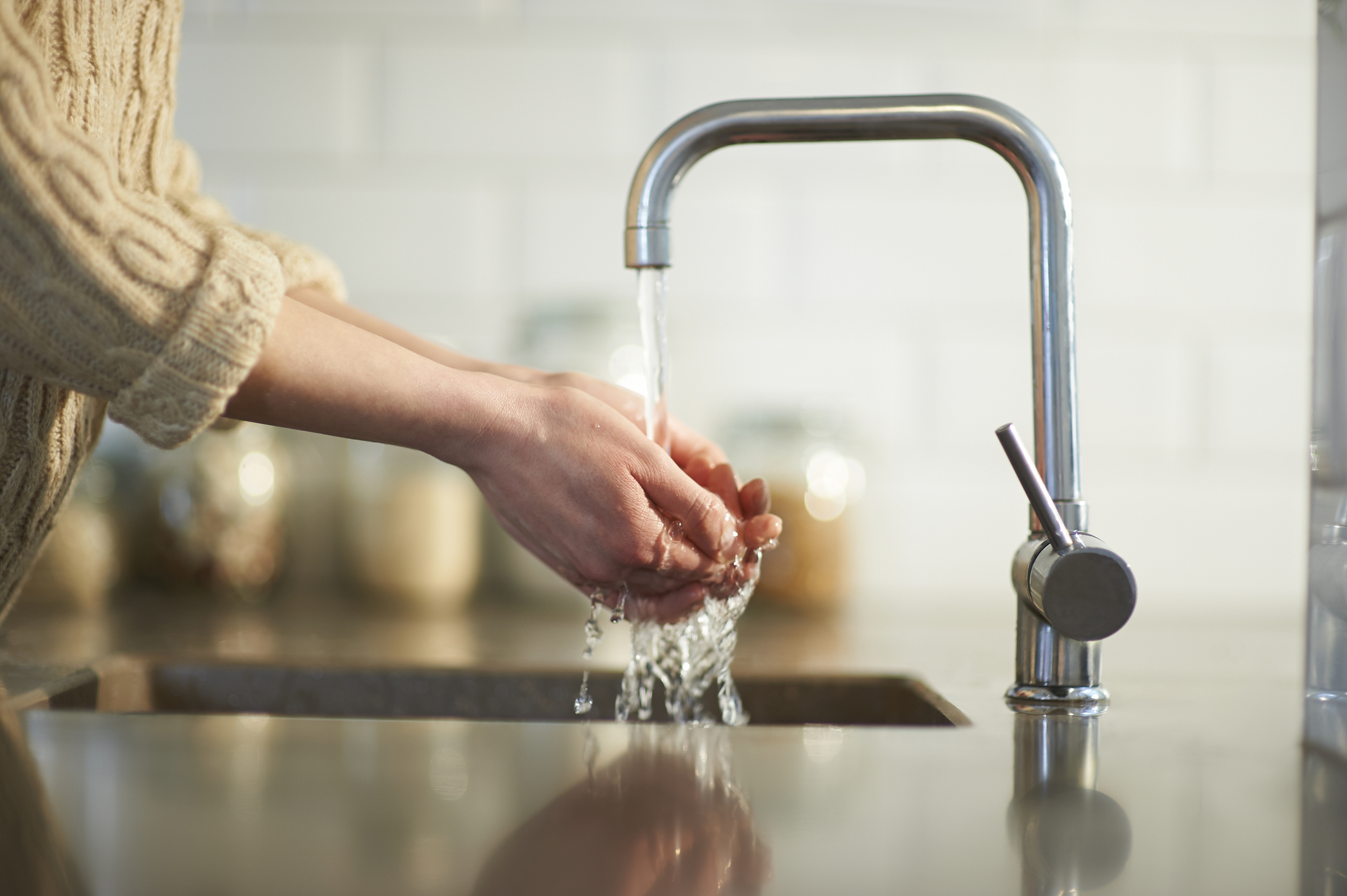Will a water meter save you money?
If you’re looking to keep your water bill as low as possible, then you may be considering moving to a water meter. But will doing so mean you are better off?


Get the latest financial news, insights and expert analysis from our award-winning MoneyWeek team, to help you understand what really matters when it comes to your finances.
You are now subscribed
Your newsletter sign-up was successful
Want to add more newsletters?

Twice daily
MoneyWeek
Get the latest financial news, insights and expert analysis from our award-winning MoneyWeek team, to help you understand what really matters when it comes to your finances.

Four times a week
Look After My Bills
Sign up to our free money-saving newsletter, filled with the latest news and expert advice to help you find the best tips and deals for managing your bills. Start saving today!
Moving to a water meter could mean you cut the size of your water bill.
Many of us are looking to reduce our outgoings given the ongoing economic situation, meaning comparing new deals on things like broadband, energy bills and insurance.
While you cannot shop around for a new water supplier as you might with other utilities, there are still ways to potentially cut your water bill, such as having a water meter fitted.
MoneyWeek
Subscribe to MoneyWeek today and get your first six magazine issues absolutely FREE

Sign up to Money Morning
Don't miss the latest investment and personal finances news, market analysis, plus money-saving tips with our free twice-daily newsletter
Don't miss the latest investment and personal finances news, market analysis, plus money-saving tips with our free twice-daily newsletter
But is it a good idea? Will a water meter save you money?
What’s happening with water bills?
First off, it’s worth taking a moment to dig into what we know about our water bills next year.
We don’t yet have confirmation from Ofwat, the water regulator, over precisely how much bills will be increasing. Water suppliers are required to submit five-year plans, which outline the investments they propose to make in the infrastructure, and how much bills will need to increase.
Water UK, the trade body for water suppliers, recently outlined the plans suppliers have for making record investments into our infrastructure. Inevitably this will have a knock-on effect on the size of our bills, with suppliers aiming to increase bills by an average of £7 a month in 2025, and growing up to an extra £13 a month in 2030. The specifics will vary based on your location and water supplier.
It’s now up to Ofwat to go through those plans and confirm what the suppliers will actually be permitted to charge, and we won’t get clarity on that until next year.
We do know however that many suppliers will not be able to increase bills by as much as they would have planned to, having been ordered to refund customers money due to failing to meet targets on things like leaks, pollution and customer service.
12 suppliers who failed to perform as expected have been told to take £114 million out of next year’s bills as punishment.
What are water meters?
If you do not have a water meter, then your water bills are based on estimates. The water supplier doesn’t actually have accurate information about your water use, and so charges you based on the ‘rateable value’ of your home. This is essentially based on how big your home is.
This can obviously be a great benefit if you happen to be a large water user since you’ll be paying less. But if you tend to use less water than average households in your area, then you will be paying more as a result.
The alternative is to opt for a water meter, which does track your water use. Your annual bills are then more accurate since they are based on what you really are using rather than what you are expected to use.
Will a water meter save me money?
Whether a water meter will save you money ultimately comes down to your level of water use and how that compares to the ‘rateable value’ of your home.
If you have a large home but there are only a few of you living there, then you could find that a water meter saves you money. But equally, if you have a larger family and regularly have the dishwasher and washing machine on, then you may benefit from staying as you are.
To get a good insight into whether a water meter will mean you pay less for your water use, then it’s worth trying the water meter calculator on the Consumer Council for Water website.
You’ll have to share some details about your water supplier and water use, such as the number of baths and showers taken in your household each week and how frequently you stick on the dishwasher or washing machine.
It can then calculate whether you’re likely to be better off moving to a water meter.
Given most of us don’t necessarily know how often we use the washing machine or flush the toilet, you might like to track your use for a week so that you have more accurate information to use with the calculator. That said, it’s only ever going to give you an estimate over whether you’ll save by moving to a water meter ‒ there’s no guarantee.
How can I get a water meter?
You can ask your water supplier directly to have a water meter installed at your property.
Water suppliers must fit water meters when you request one, so long as it is not impractical or overly expensive.
You can change your mind too, with many suppliers allowing you to move back to an unmetered bill within two years. Bear in mind that the actual deadline for changing your mind will vary based on your supplier.
Will I have to pay for a water meter?
There’s no cost involved in getting a water meter fitted.
The water supplier will cover the cost of having the water meter installed, whether that’s inside or outside your home.
What if I can’t get a water meter?
There may be occasions when your water supplier says you cannot get a water meter. That does not mean that you are stuck paying the same, higher bills for your energy use, however.
Instead, you can ask to go onto an assessed charge bill. This requires the supplier to do a little more work in attempting to give you a more accurate bill, and while the exact methodology varies between suppliers, the assessed charge bill will take into account factors like the number of bedrooms in your home, the type of property and how many people live there.
If you aren’t happy about being turned down for a water meter, then you may prefer to take your issue to Ofwat.
Get the latest financial news, insights and expert analysis from our award-winning MoneyWeek team, to help you understand what really matters when it comes to your finances.
John Fitzsimons has been writing about finance since 2007, and is a former editor of Mortgage Solutions and loveMONEY. Since going freelance in 2016 he has written for publications including The Sunday Times, The Mirror, The Sun, The Daily Mail and Forbes, and is committed to helping readers make more informed decisions about their money.
-
 Can mining stocks deliver golden gains?
Can mining stocks deliver golden gains?With gold and silver prices having outperformed the stock markets last year, mining stocks can be an effective, if volatile, means of gaining exposure
-
 8 ways the ‘sandwich generation’ can protect wealth
8 ways the ‘sandwich generation’ can protect wealthPeople squeezed between caring for ageing parents and adult children or younger grandchildren – known as the ‘sandwich generation’ – are at risk of neglecting their own financial planning. Here’s how to protect yourself and your loved ones’ wealth.
